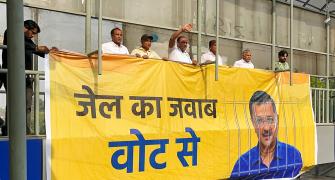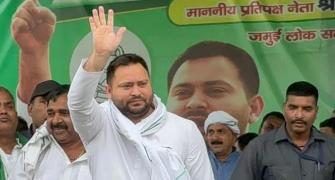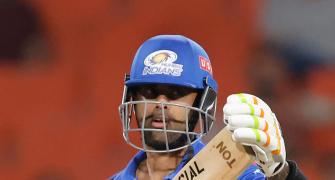Finance Minister P Chidambaram's budget announcement to cut the excise duty on drugs from 16 per cent to 8 per cent received a loud applause from many corners.
Describing it a pro-poor measure, Union Minister for Chemicals and Fertiliser Ram Vilas Paswan hoped that the industry would pass on the benefit to consumers without delay.
However, the common man is yet to see its impact as there are many loose ends to be tied up and loopholes to be plugged before drug prices show any downward trend.
The new excise duty came into effect on March 1 last. More than two months have passed, and have the manufacturers slashed prices?
Speaking to Business Standard, Dr B R Jagashetty who took charge as Drugs Controller of Karnataka a fortnight ago, said, "I believe manufacturers in the state have started bringing down the prices."
Is the department conducting inspections to ensure this? "Since the entire administrative machinery in the state is busy with the Assembly elections, we have not yet taken up the task on hand," he said.
The Drugs Controller's department in Karnataka, authorised and instructed by the National Pharmaceutical Pricing Authority to ensure a price cut, is facing another problem -- the shortage of drug inspectors.
There are only five inspectors to cover the 400-odd manufacturing units and only 30-off drugs inspectors to supervise the 21,000 sales points across the state.
"The ratio is highly skewed," said Jagashetty.
Nonetheless, he said, the department will soon call a meeting of manufacturers and will start sending teams of inspectors to spots. "We will make sure defaulters are brought to book. Our ultimate aim is to see that the benefit of a duty cut reaches the end-users."
According to Bangalore-based chemist and druggist G Mahesh, after the duty cut, price reduction can be seen on the MRP of a few drugs while some of the companies have not brought down the price.
"The fresh stocks of some drugs are yet to arrive. It will take some time to see the real impact," he said.
Ravindrakumar M J, executive committee member, All India Organisation of Chemists and Druggists pointed out: "By this time, fresh batches of fast-moving drugs including those for treating diabetes and BP must be already in the market."
Jatish Seth, secretary, Karnataka Drugs and Pharmaceuticals Manufacturers' Association maintains that market forces play a major role here.
"I, as a manufacturer have implemented the price cut. I assume others too are following suit. It is voluntary on the part of the manufacturer to bring down the price. Ultimately, what works is the competition forcing the industry to alter prices rather than rules and regulations."
"The products in question here are life-saving drugs and not cars or cosmetics. How can you let the market forces decide the price," asks Ravindranath Guru of Consumer Care Society.
"Whenever duties were hiked, drug companies took no time in raising the prices. When there is a reduction in duty, lowering of prices is either not done, or is postponed. There is no effective mechanism to monitor this," he observes.
Shailesh Shiroya, Managing Director of Bangalore-based Bal Pharma said his company has slashed prices of drugs following the reduction in the excise duty. At the same time, he expressed concern over the rising input costs.
Ravi Seth, Group CFO of Strides Arcolab said, "Since most of the sourcing of our products is done through duty free zones, excise duty cut does not apply to us in a major way."
The size of the domestic drugs market is estimated to be in the range of Rs 35,000 -- Rs 40,000 crore. Price cut applies to about 25-30 per cent of these drugs which are notified as 'scheduled', or 'price-controlled'.
Industry watchers say that hardly 15-20 per cent of the medicines are likely to be cheaper as a result of excise duty cut, as about 80-85 per cent of the medicines sold in the domestic market are sourced from tax-exempt zones like Himachal Padesh and Uttarakhand.
Though Chidambaram had reduced the excise duty from 16 per cent to 8 per cent, simultaneously the abatement rate, the base on which the duty will be calculated was increased to 64.5 per cent from 57.5 per cent.
Hence, though excise duty is halved, in effect the retail prices are to be slashed by only 4.58 per cent.
"All said and done, excise duty cuts do not make a drug cheap," points out S Srinivasan of Locost (Low Cost Standard Therapeutics), a Baroda-based charitable trust that makes drugs at low cost.
"Duty cuts end up enriching the manufacturers as what will be 'passed on' to the consumer is often tokenistic. Nothing less than price regulation with ceiling prices is going to make drugs affordable," he asserts.







